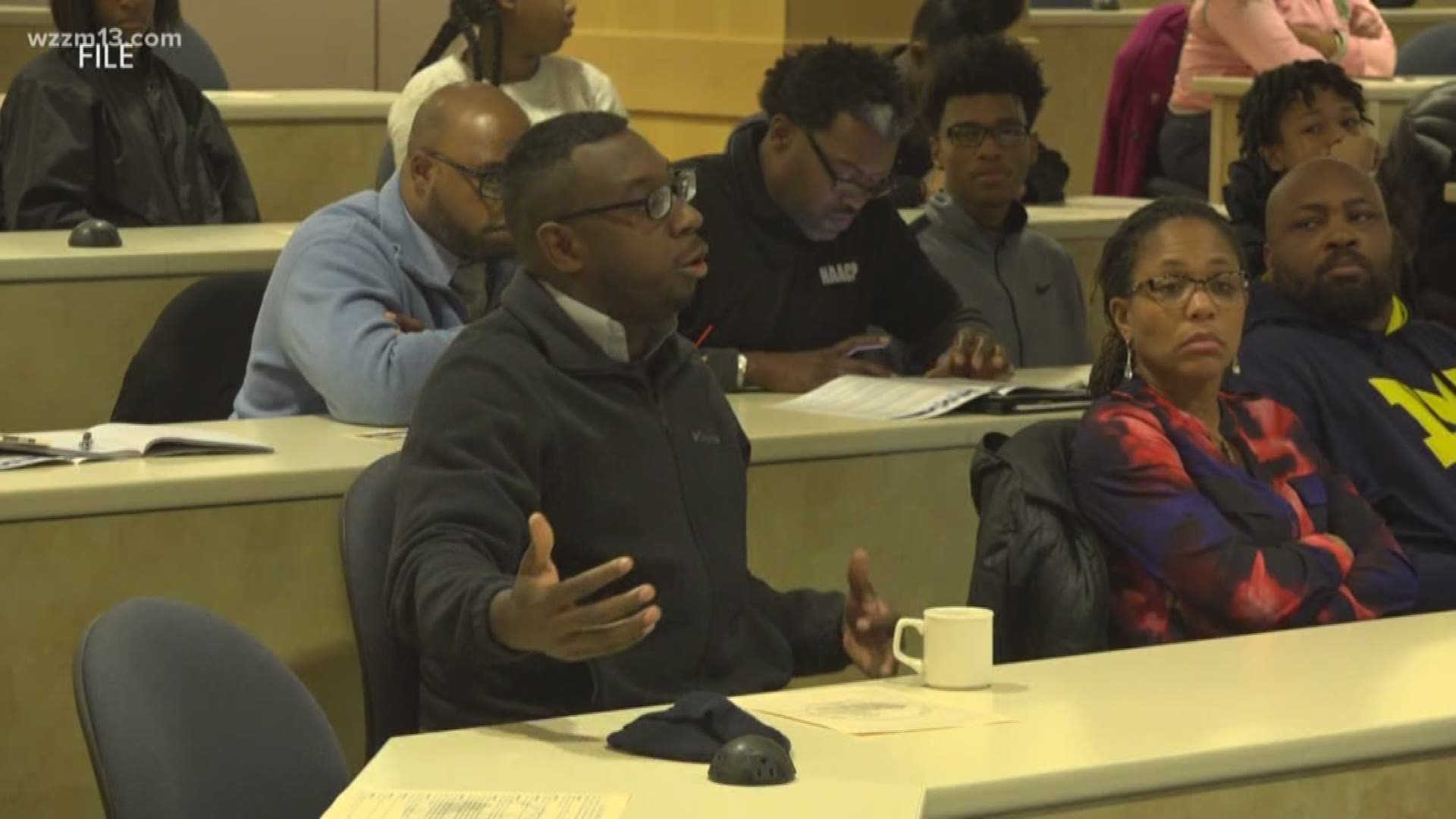GRAND RAPIDS, Mich. - The Grand Rapids Police Department is making changes in the way the department operates and trains its officers.
These changes are from a 12-point plan developed in 2015 as part of an ongoing policy and procedure review by a community lead task force.
Most of the points have been implemented.
The city is working to strengthen relationship with the community and build trust in the department. Some changes the department has made because of the 12-point plan include:
All sworn Grand Rapids Police Officers have been outfitted with body cameras. Administrative protocols list details of when the cameras are to be used, how long they data is kept, privacy protections for the public, and access to data. They also took part in a bias-free policing seminar from Lamberth Consulting.
A citywide listening tour allowing people living in all three wards to give input on relations between police and the community. Regular meetings are now scheduled between the police and Grand Rapids Association of Pastors.
The hiring of 21st Century Policing to lead a yearlong review of the police department to eliminate racial disparities. They have developed more than 40 new decision-making scenarios for the training unit. These new scenarios involve young people and should be available within the next few months.
They have added external training for GRPD command staff, instructors and officers. The training includes experts in ethics, unbiased policing, cultural diversity, de-escalation, crisis response, hostage negotiation and leadership. All command staff took a 12-hour training block in implicit bias training.
Members of the command staff took part in three days of training on issues of poverty, racial inequities, and cultural diversity.
A community immersion training program will be implemented in June. It is built on individual relationships between officers and members of the community. It increases the level of trust the community has in public safety, increases responder credibility and helps to create a culture of trust.
They have formed the IMPACT youth advisory council. It is made up of high school students who meet with Chief Rahinsky every month. The meetings review and discuss department policies.
A series of citizen police academies have been started to provide people with an in-depth look at GRPD policies and procedures. Registration for this falls academy is open and available on the city’s website.
Last year, the most diverse class of officers in the GRPD’s history was hired. The nine-officer class consisted of three African-American men, three Caucasian women, two Caucasian men and one Asian-American woman.
The city completed a three-year review of traffic stop bias. The results of the Lamberth Consulting study can be found here.
“Activation of the Youth Policy and implementation of the 12-Point Plan are important next steps for our department and our community,” Chief Rahinsky said. “We are committed to continuing to strengthen relationships with our community and provide professional, progressive and responsive law enforcement services.”
The Task Force’s next quarterly meeting is Wednesday, June 6, the time and location is still being finalized.
►Make it easy to keep up to date with more stories like this. Download the WZZM 13 app now.
Have a news tip? Email news@wzzm13.com, visit our Facebook page or Twitter.

